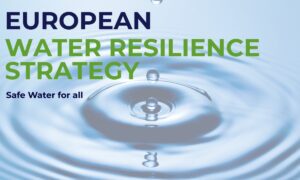COP29, held in Baku, Azerbaijan, from 11 to 22 November 2024, marked a critical moment in the fight against climate change, with the European Union at the forefront of pushing for ambitious global climate action.
The EU’s key priority at COP29 was the adoption of a New Collective Quantified Goal (NCQG) on climate finance. With the EU already the world’s largest provider of climate finance – contributing €28.6 billion in public finance in 2023, alongside €7.2 billion in private finance – the EU called for an expanded and more equitable financial framework to support developing countries. The NCQG aims to ensure that financial flows are aligned with the Paris Agreement, enabling countries to reduce emissions and adapt to the impacts of climate change.
The EU emphasised the need for all major economies to contribute fairly to the global climate finance effort, including both public and private sources. Energy transition was another major focus at COP29. The EU pushed for the reaffirmation of global energy goals, including the phase-out of fossil fuels, tripling investments in renewable energy, and doubling energy efficiency measures by 2030. The EU also advocated for stronger and more ambitious Nationally Determined Contributions (NDCs) from all parties, calling for enhanced commitments to reduce emissions and accelerate the global transition to clean energy.
In addition to the EU’s efforts, the European Parliament played an active role at COP29. Led by Chair Lídia Pereira and Vice-Chair Mohammed Chahim, the Parliament’s delegation worked to ensure that all high-GDP, high-emission countries contribute financially to global climate action. The Parliament also called for increased green diplomacy, urging countries to adopt carbon pricing mechanisms similar to the EU’s Emissions Trading Scheme (ETS).
As COP29 concluded, discussions focused on key issues such as climate finance, energy transition, and the need for global cooperation to meet the goals of the Paris Agreement. The outcomes of the conference are expected to influence the next steps in addressing the urgent challenge of climate change, with a continued emphasis on achieving a sustainable and equitable future through collective global efforts.



